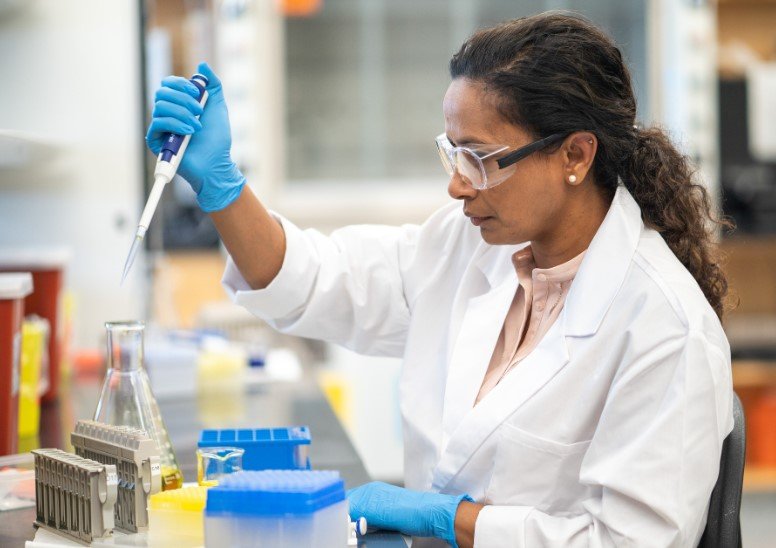King Faisal Specialist Hospital and Research Centre in Riyadh has made a major breakthrough by producing CAR-T cells locally for cancer treatment. This move cuts costs and speeds up access for patients in Saudi Arabia, marking a key step in the nation’s biotech growth as of October 2025.
Breakthrough in Local Gene Therapy
Saudi Arabia is stepping up in advanced medical treatments. King Faisal Specialist Hospital and Research Centre, known as KFSHRC, recently succeeded in making chimeric antigen receptor T-cells, or CAR-T cells, right inside the country. This happened through a national clinical trial that treated the first patient with tough-to-beat acute lymphoblastic leukemia.
The hospital used a closed-system setup in its Riyadh facility to ensure top quality. Overseen by the Saudi Food and Drug Authority, this puts Saudi Arabia among a small group of nations that can both create and test these therapies at home. The effort started showing results in mid-2024, with full rollout by 2025.
This innovation targets blood cancers like leukemia and lymphomas that resist standard care. By tweaking a patient’s own immune cells to fight cancer, it offers new hope where options were limited before.
Cutting Costs and Speeding Up Treatment
One big win from local production is the drop in price. What used to cost about 1.3 million Saudi riyals per patient now runs around 250,000 riyals. That is a huge saving, making the therapy reachable for more people.
Time is another gain. In the past, cells had to ship abroad for processing, taking up to 28 days. Now, it happens in 12 to 14 days, all within Saudi borders. This avoids delays from transport and storage issues.
Patients no longer wait weeks or months for overseas help. Quick access can mean better outcomes, especially in fast-moving cancers. Recent data from 2025 shows similar therapies have boosted survival rates by up to 50 percent in tough cases worldwide.

Here is a quick comparison of the old and new approaches:
| Aspect | Previous Method | Local Production at KFSHRC |
|---|---|---|
| Cost per Treatment | 1.3 million SAR | 250,000 SAR |
| Processing Time | Up to 28 days | 12 to 14 days |
| Location | Abroad | Riyadh, Saudi Arabia |
| Logistical Challenges | High (shipping and storage) | Low (all in-country) |
Success in First National Clinical Trial
The trial at KFSHRC marked a first for Saudi Arabia. Doctors treated a patient with refractory leukemia using these home-made CAR-T cells. Results showed the therapy worked well, with the patient responding positively.
This builds on global trends where CAR-T has helped thousands since its approval in places like the United States in 2017. In Saudi Arabia, it ties into efforts to handle rising cancer cases, which reached over 27,000 new diagnoses in 2024 according to health reports.
Experts say this trial proves the hospital’s setup meets international standards. It also opens doors for more studies on other cancers.
The process involves drawing a patient’s blood, modifying the T-cells in a lab to target cancer, and infusing them back. Side effects can include fever or fatigue, but monitoring helps manage them.
Alignment with Saudi Arabia’s Biotech Vision
This achievement fits into the bigger picture of Saudi Arabia’s National Biotechnology Strategy. Launched in 2024 by Crown Prince Mohammed bin Salman, it aims to build a strong life-sciences sector by 2040.
The plan focuses on local industries to improve health and the economy. KFSHRC’s work supports this by reducing reliance on foreign tech and creating jobs in biotech.
In 2025, the kingdom invested billions in health research, leading to more innovations like this. It also ties into global events, such as partnerships at international forums where Saudi leaders shared progress.
Plans for Scaling Up Production
KFSHRC aims to ramp up to 100 gene therapy treatments each year. This goal will help more patients and position the hospital as a regional leader.
To reach it, the center is expanding facilities and training staff. They plan to cover more cancer types and possibly other diseases like autoimmune conditions.
Benefits of this expansion include:
- Faster treatment for local patients, reducing travel needs.
- Lower overall healthcare costs for the nation.
- Boost to research, attracting global experts.
- Stronger supply chain for biotech materials.
This growth could inspire similar efforts in neighboring countries, spreading advanced care across the Middle East.
Impact on Cancer Care and Future Outlook
Local CAR-T production changes the game for cancer patients in Saudi Arabia. It means quicker, cheaper access to cutting-edge care, improving life quality and survival chances.
Looking ahead, experts predict more advances in 2026, like combining CAR-T with other therapies. With cancer rates expected to rise globally, these steps keep Saudi Arabia at the forefront.
This also highlights the role of research hospitals in national health. As biotech evolves, KFSHRC’s model could become a blueprint for others.
What do you think about this medical breakthrough? Share your thoughts in the comments and pass this article along to spread the word.
